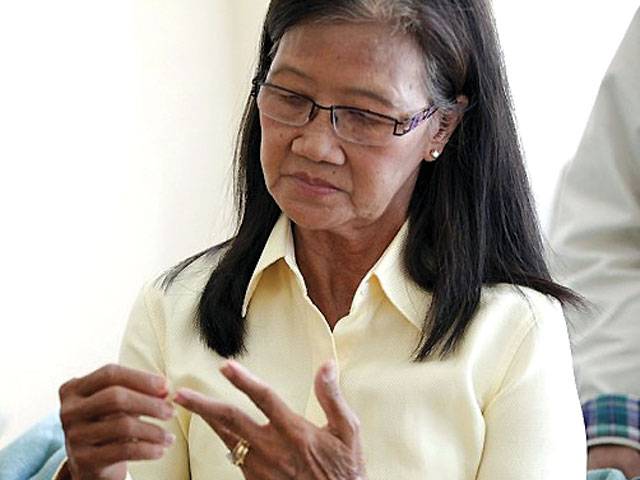A MYSTERIOUS new disease has left scores of people in Asia and some in the US with AIDS-like symptoms even though they are not infected with HIV. The patients’ immune systems become damaged, leaving them unable to fend off germs as healthy people do. What triggers this is unknown but the disease does not seem to be contagious. It appears to be another kind of acquired immune deficiency that is not inherited and occurs in adults. However it doesn’t spread the way AIDs does through a virus, said Dr Sarah Browne, a scientist at the National Institute of Allergy and Infectious Diseases (NIAID), which is part of the National Institute of Health. She helped lead the study with researchers in Thailand and Taiwan where most of the cases have been found since 2004. Their report is in Thursday’s New England Journal of Medicine.‘This is absolutely fascinating. I’ve seen probably at least three patients in the last 10 years or so’ who might have had this, said Dr. Dennis Maki, an infectious disease specialist at the University of Wisconsin in Madison. It’s still possible that an infection of some sort could trigger the disease, even though the disease itself doesn’t seem to spread person-to-person, he said. The disease develops around age 50 on average but does not run in families, which makes it unlikely that a single gene is responsible, Browne said. Some patients have died of overwhelming infections, including some Asians now living in the US, although Browne could not estimate how many.Kim Nguyen, 62, a seamstress from Vietnam who has lived in Tennessee since 1975, was gravely ill when she sought help for a persistent fever, infections throughout her bones and other bizarre symptoms in 2009. She had been sick off and on for several years and had visited Vietnam in 1995 and again in early 2009.‘She was wasting away from this systemic infection’ that at first seemed like tuberculosis but wasn’t, said Dr Carlton Hays Jr., a family physician at the Jackson Clinic in Jackson, Tennessee. ‘She’s a small woman to begin with, but when I first saw her, her weight was 91 pounds, and she lost down to 69 pounds.’Nguyen (pronounced ‘when’) was referred to specialists at the National Institutes of Health who had been tracking similar cases. She spent nearly a year at an NIH hospital in Bethesda, Maryland, and is there now for monitoring and further treatment. ‘I feel great now,’ she said on Wednesday. But when she was sick, ‘I felt dizzy, headaches, almost fell down,’ she said. ‘I could not eat anything.’ –DM
Sunday, May 19, 2024
Mystery AIDS-like disease discovered

NEPRA’s Neglect
May 19, 2024
Colonial Grip
May 19, 2024
Confrontational Politics
May 19, 2024
Sports & Genocide
May 18, 2024
Healing AJK
May 18, 2024
Unsung Heroes of Society
May 19, 2024
Water Shortage in Our Area
May 19, 2024
The AI Trap
May 19, 2024
Continuing Narrative of Nakba
May 18, 2024
Teacher Struggles
May 18, 2024
ePaper - Nawaiwaqt
Advertisement
Nawaiwaqt Group | Copyright © 2024





